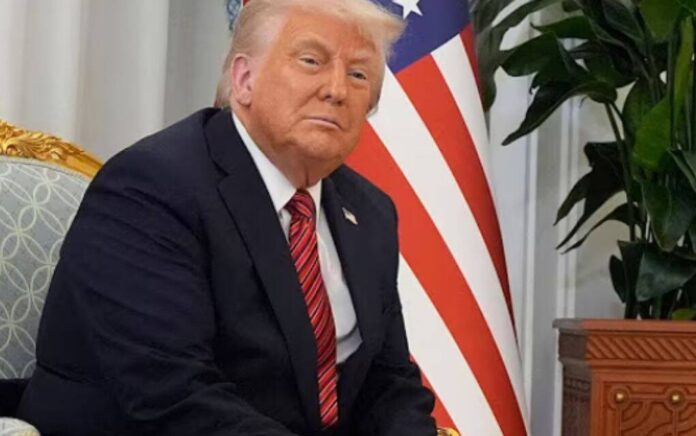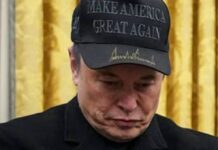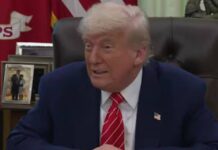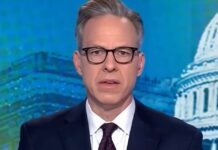
This news has everyone on the edge of their seat. It could change the United State’s foreign policy decisions for years to come.
And President Trump is preparing to make an announcement with major nuclear implications.
Trump’s Move Toward Peace with Iran
In a striking development, President Donald Trump announced on Thursday that the United States is on the cusp of a historic nuclear agreement with Iran. Speaking during a tour of the Gulf, Trump revealed that Tehran has “sort of” signaled its acceptance of the proposed terms, igniting hope for a diplomatic breakthrough in a decades-long standoff.
“We’re in very serious negotiations with Iran for long-term peace,” Trump declared, as reported by AFP. His words carry the weight of a leader determined to resolve one of the world’s most persistent geopolitical challenges. “We’re getting close to maybe doing a deal without having to do this… there (are) two steps to doing this, there is a very, very nice step and there is the violent step, but I don’t want to do it the second way,” he added, emphasizing his preference for dialogue over confrontation.
Recent talks in Oman, which concluded on Sunday, marked another chapter in the delicate dance between U.S. and Iranian negotiators. While both sides expressed a commitment to diplomacy, an Iranian source close to the discussions cautioned that significant gaps remain.
Tehran has publicly stood firm on its right to continue uranium enrichment, a sticking point that has long fueled tensions. Yet, there are signs of flexibility, with Iranian officials indicating a willingness to lower enrichment levels and reduce stockpiles of highly enriched uranium—material that exceeds civilian needs.
The negotiations are not without their challenges. Iran’s president, Masoud Pezeshkian, sharply rebuked Trump’s characterization of Tehran as the “most destructive force” in the Middle East. “Trump thinks he can sanction and threaten us and then talk of human rights. All the crimes and regional instability is caused by them (the United States),” Pezeshkian said, accusing the U.S. of sowing discord within Iran. This fiery exchange highlights the deep mistrust that negotiators must navigate.
At the heart of the dispute lies Iran’s uranium enrichment program. The U.S. insists on a complete halt, a demand Iran calls a “red line,” asserting its sovereign right to enrich uranium domestically. However, Iran has signaled openness to reducing enrichment levels and limiting its stockpile of highly enriched uranium to the amounts agreed upon in the 2015 nuclear deal—a pact Trump famously withdrew from during his first term.
The Iranian source noted that Tehran is prepared to make concessions but stressed that “the issue is that America is not willing to lift major sanctions in exchange.” These sanctions have crippled Iran’s economy, adding urgency to the talks.
Further complicating matters, the two sides disagree on the logistics of removing Iran’s highly enriched uranium. Tehran proposes a phased approach, while the U.S. seeks a more immediate solution. The destination of the uranium remains another point of contention, with no consensus yet reached.
Trump’s Mastery at the Negotiating Table
President Trump’s approach to these high-stakes talks showcases his unparalleled skill as a negotiator. Known for his unorthodox style, Trump blends bold rhetoric with strategic flexibility, keeping adversaries off balance while opening pathways to compromise.
His ability to frame the Iran negotiations as a choice between a “very, very nice step” and a “violent step” demonstrates his knack for setting the tone, making clear the consequences of inaction without closing the door to diplomacy. This calculated balance of pressure and opportunity has brought Iran to the table, even as tensions simmer.
Trump’s deal-making prowess is rooted in his keen understanding of leverage. By maintaining stringent sanctions, he has created economic incentives for Iran to negotiate, while his willingness to engage directly signals a pragmatic openness to mutual gains
His decision to exit the 2015 nuclear deal, though controversial, reset the terms of engagement, allowing him to demand stricter conditions while offering Iran a chance to ease its economic isolation. This bold move reflects his ability to take risks that reshape the negotiating landscape in America’s favor.
Moreover, Trump’s personal charisma and direct communication style have a unique impact on international diplomacy. By speaking plainly about his desire for peace and his aversion to military conflict, he humanizes the process, making it harder for Iran to dismiss him as merely a hawkish adversary.
His Gulf tour, where he made these remarks, was a masterstroke in public diplomacy, projecting strength to allies while signaling to Iran that a deal is within reach.
As negotiations progress, Trump’s ability to read the room, adapt to shifting dynamics, and seize moments of opportunity will likely prove decisive in securing a lasting agreement.
Stay tuned to The Federalist Wire.



















